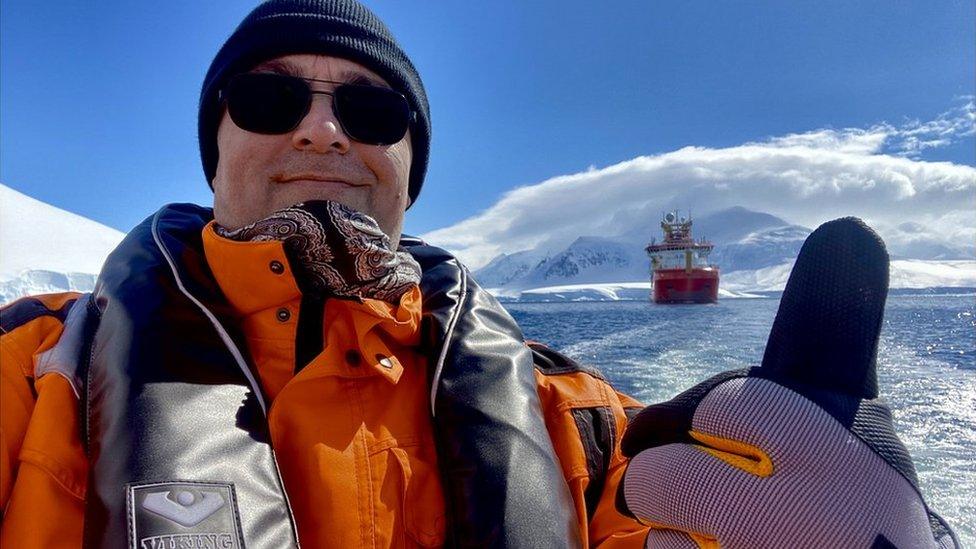What do you pack for months in Antarctica?
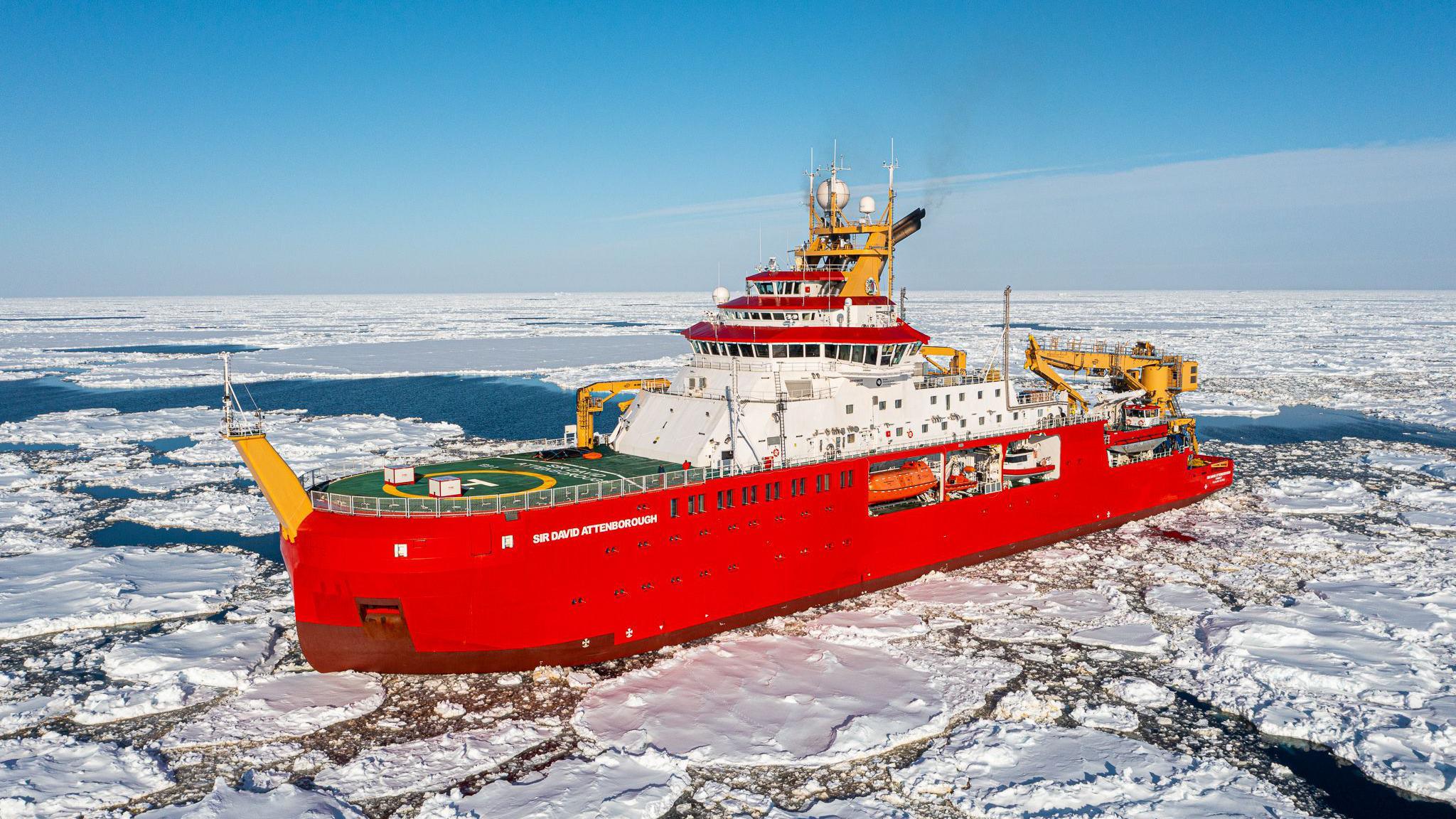
RRS Sir David Attenborough will leave Harwich for Antarctica on Sunday
- Published
"You always need to bring your favourite chocolate bar with you," Natalie Ensor laughs, as she prepares to spend three months in Antarctica.
The lab manager is one of 34 crew and about 25 scientists departing on the 8,000-km (5,000-mile) journey from Harwich International Port on the UK's RRS Sir David Attenborough on Sunday.
The research ship will return in July next year, but many of the British Antarctic Survey team will only be on board for a few months at a time.
"The chocolate on board is fantastic, but it is communal, so when it runs down you don't have any," Ms Ensor continued.
In her suitcase is a bar of Toblerone and a box of Belgian chocolate seashells, as well as sewing kits and colouring books to keep her busy in the evening.
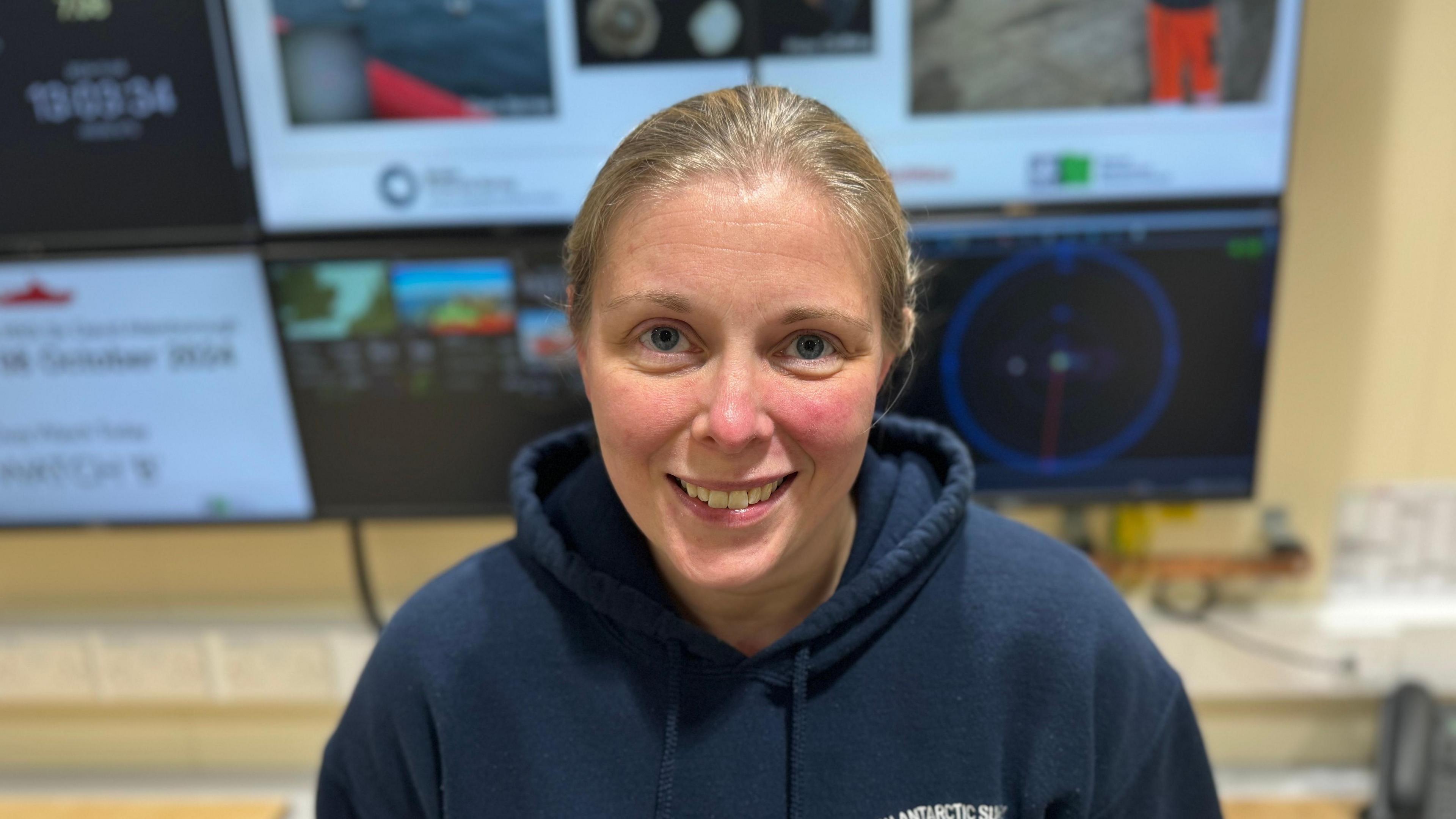
Natalie Ensor is a lab manager on board RRS Sir David Attenborough
Theresa Gussmann also works in the ship's labs, which span the size of about four tennis courts.
She said her packing list essentials were fairy lights and photos of her family and friends to decorate her cabin.
"I love it, it's always very fun," said Ms Gussmann, who has worked for British Antarctic Survey for two years.
"You meet lots of people, you discover lots of different science you don't necessarily get exposed to if you're just working in one specific lab.
"Here, you can go from marine biology to physical oceanography to atmospheric science, so it's just really great to be able to see what can be done in just one ship."
The ship has accommodation for up to 90 people, and regular announcements can be heard on board – some of them voiced by the vessel's namesake, Sir David Attenborough.
Crew have access to facilities like a hospital, gym, sauna, and coffee shop.
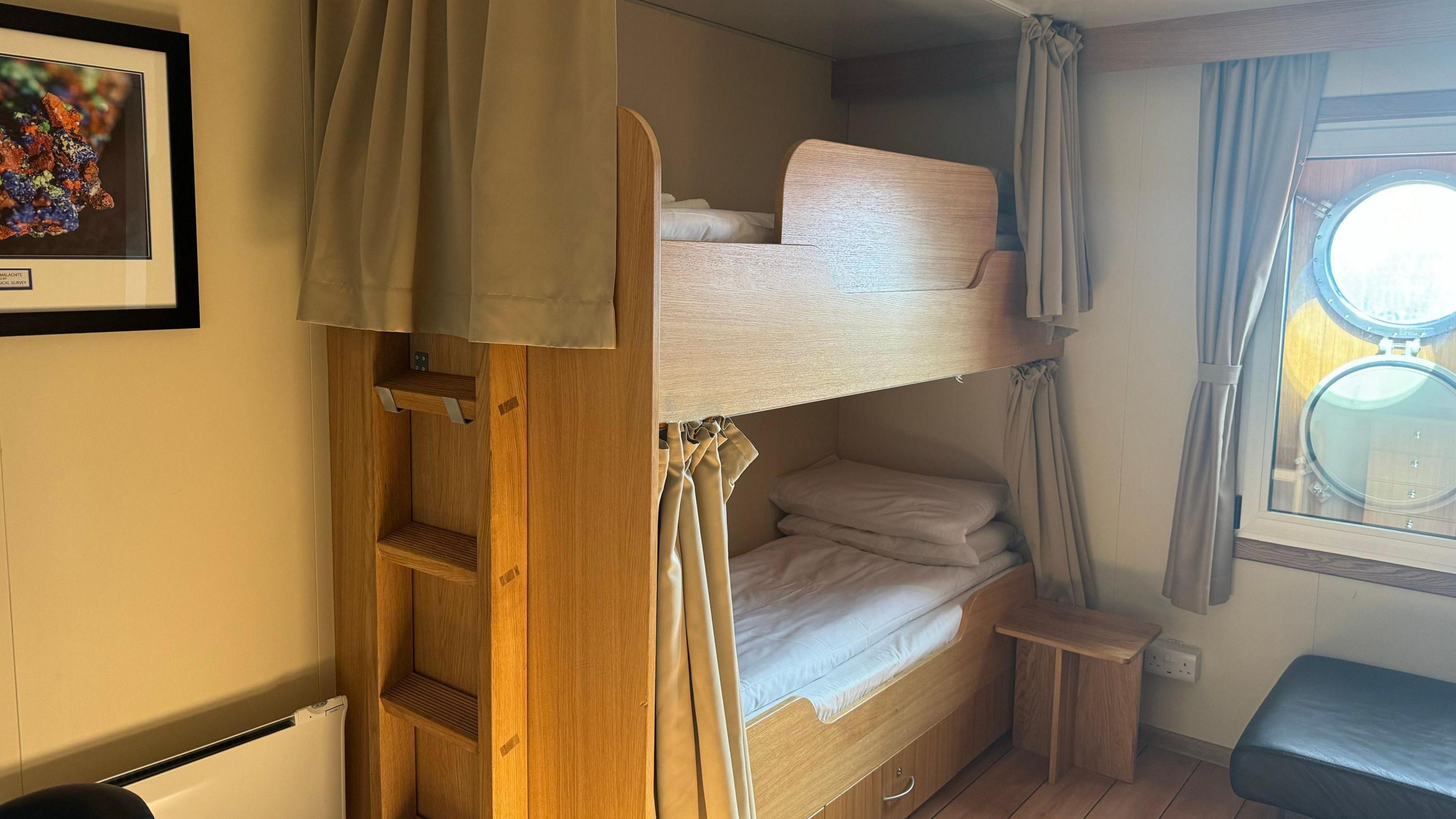
Crew members each have their own cabin, and pairs of scientists share
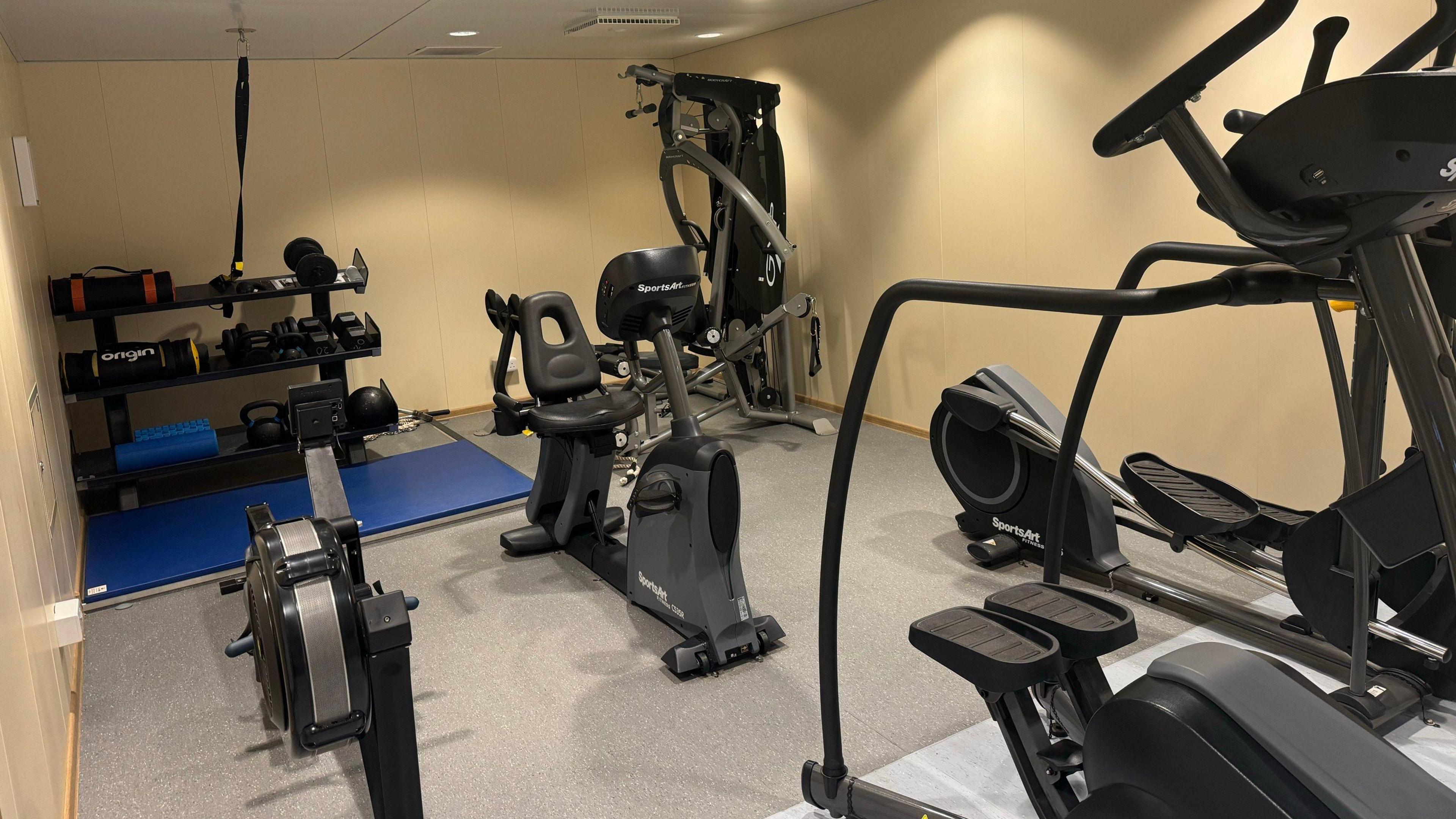
An on board gym helps the team keep fit
'Passionate'
Captain Ralph Stevens said he had got used to what was and was not available after working at sea for 26 years.
"It's just so wonderful to be able to go down to the Antarctic and work with the scientists who are so passionate about what they do.
"Usually, I pop up to the supermarket and get a year's worth of shower gel."
The vessel was once set to be called Boaty McBoatface after a public vote in 2016. Biological oceanographer Geraint Tarling, who will be embarking later in the mission, said the quirky name lived on.
"We've kept the name, and what we have is an underwater drone… that we send out on missions, and we call that Boaty McBoatface. That's a great way of keeping the name alive within the organisation."
Also making the journey south is a time capsule filled with thousands of names that will be displayed at the Rothera Research Station in Antarctica.
Get in touch
Do you have a story suggestion for Essex?
David Attenborough ship visits Essex
- Attribution
Follow Essex news on BBC Sounds, Facebook, external, Instagram, external and X, external.
Related topics
- Published9 October 2024
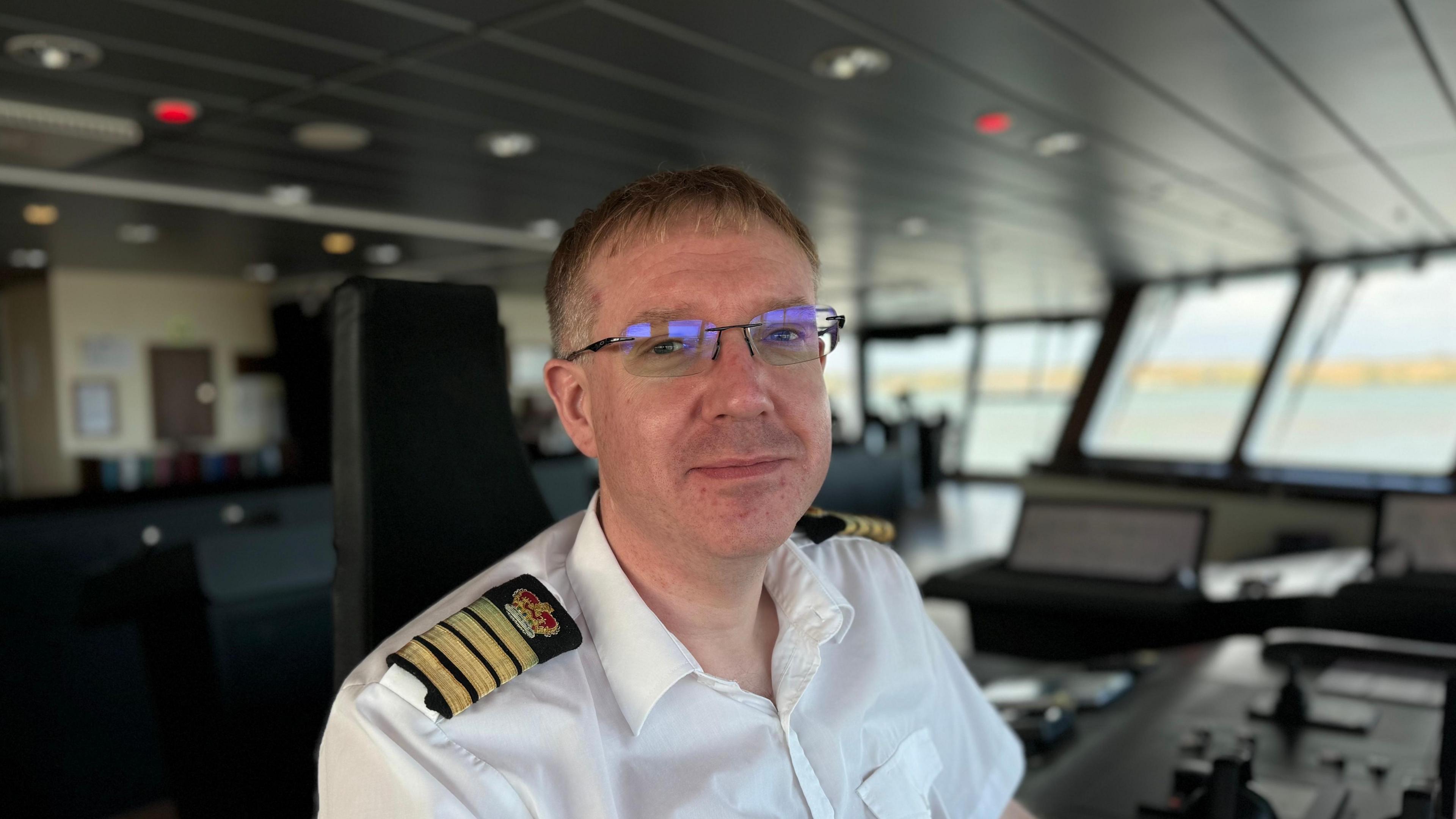
- Published4 December 2023
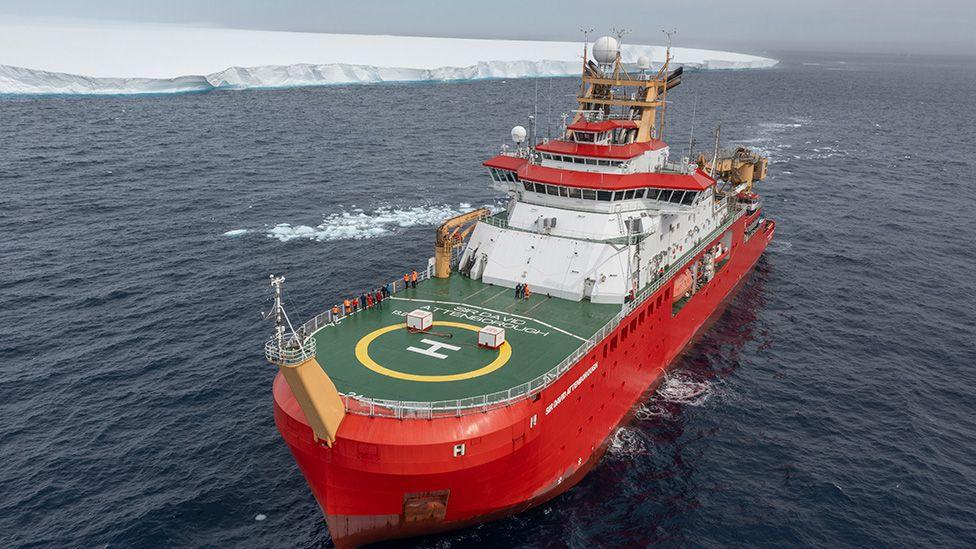
- Published24 December 2021
